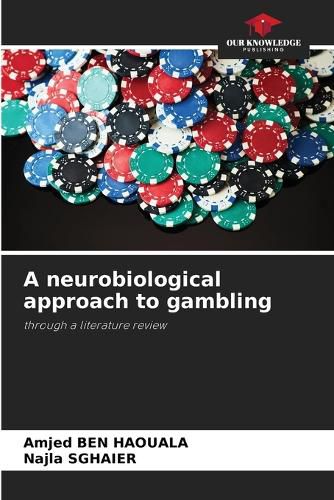Readings Newsletter
Become a Readings Member to make your shopping experience even easier.
Sign in or sign up for free!
You’re not far away from qualifying for FREE standard shipping within Australia
You’ve qualified for FREE standard shipping within Australia
The cart is loading…






Gambling is an increasingly widespread practice worldwide. Currently, gambling disorder is recognized as a behavioral addiction in the DSM-5 due to its many similarities with substance addiction. As a result, a number of neurobiological hypotheses have been tested in recent years. To this end, we carried out a literature review in the PubMed database using the following keywords: "Neurobiology" "Gambling disorder" "Gambling" and "Pathological gambling".27 articles were included, 15 of which addressed gambling from a neuroimaging perspective, 7 concerned neurochemistry and 5 dealt with the therapeutic implications of neurobiological mechanisms. Through these studies, the mechanisms involved are a dysfunction of "reward system" brain circuits, particularly in the striatum and ventromedial prefrontal cortex. These studies also highlighted the central role of dopamine and dopamine receptors, as well as noradrenergic, serotonergic, glutamatergic and opioid systems, in the genesis of this disorder.
$9.00 standard shipping within Australia
FREE standard shipping within Australia for orders over $100.00
Express & International shipping calculated at checkout
Gambling is an increasingly widespread practice worldwide. Currently, gambling disorder is recognized as a behavioral addiction in the DSM-5 due to its many similarities with substance addiction. As a result, a number of neurobiological hypotheses have been tested in recent years. To this end, we carried out a literature review in the PubMed database using the following keywords: "Neurobiology" "Gambling disorder" "Gambling" and "Pathological gambling".27 articles were included, 15 of which addressed gambling from a neuroimaging perspective, 7 concerned neurochemistry and 5 dealt with the therapeutic implications of neurobiological mechanisms. Through these studies, the mechanisms involved are a dysfunction of "reward system" brain circuits, particularly in the striatum and ventromedial prefrontal cortex. These studies also highlighted the central role of dopamine and dopamine receptors, as well as noradrenergic, serotonergic, glutamatergic and opioid systems, in the genesis of this disorder.